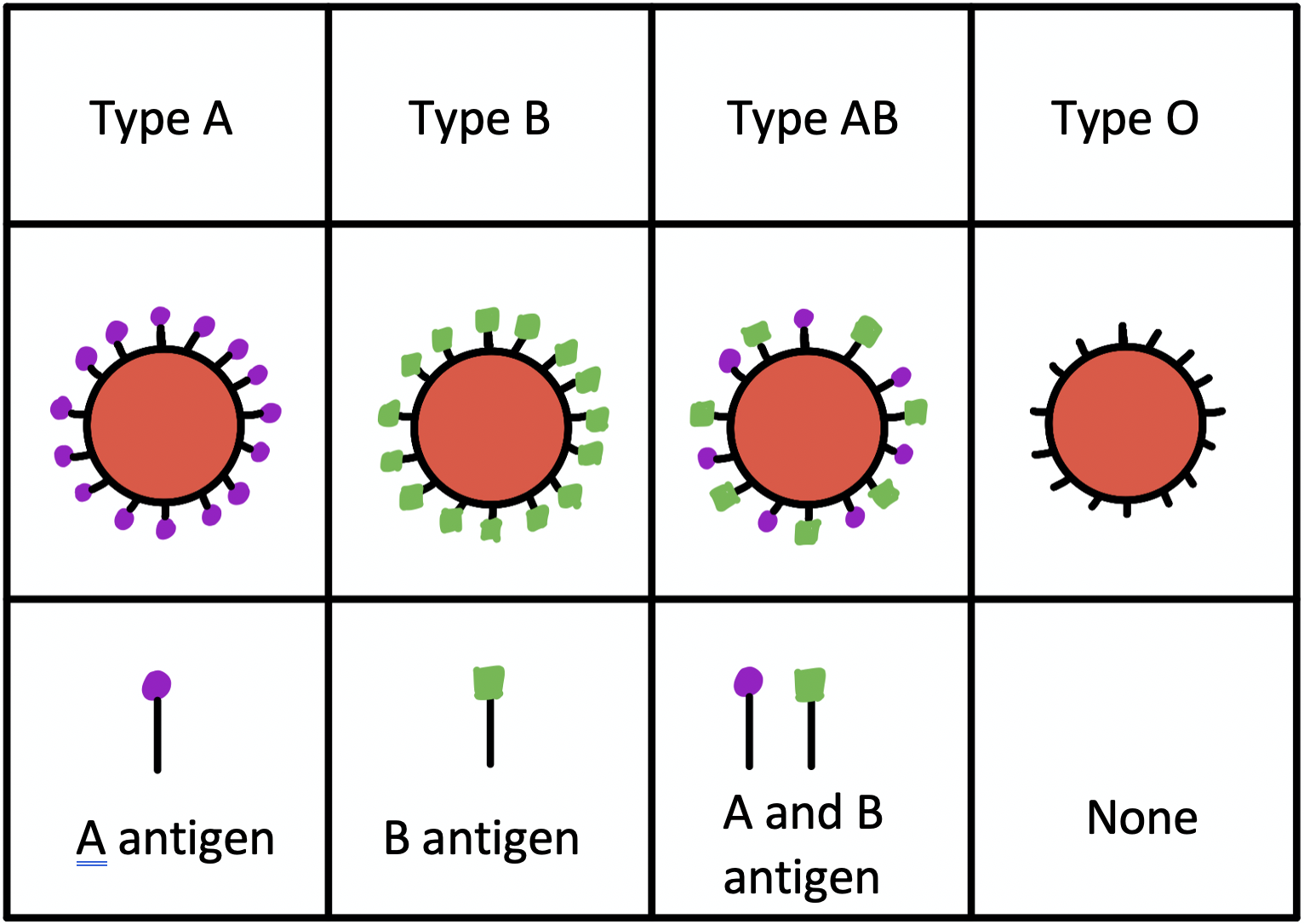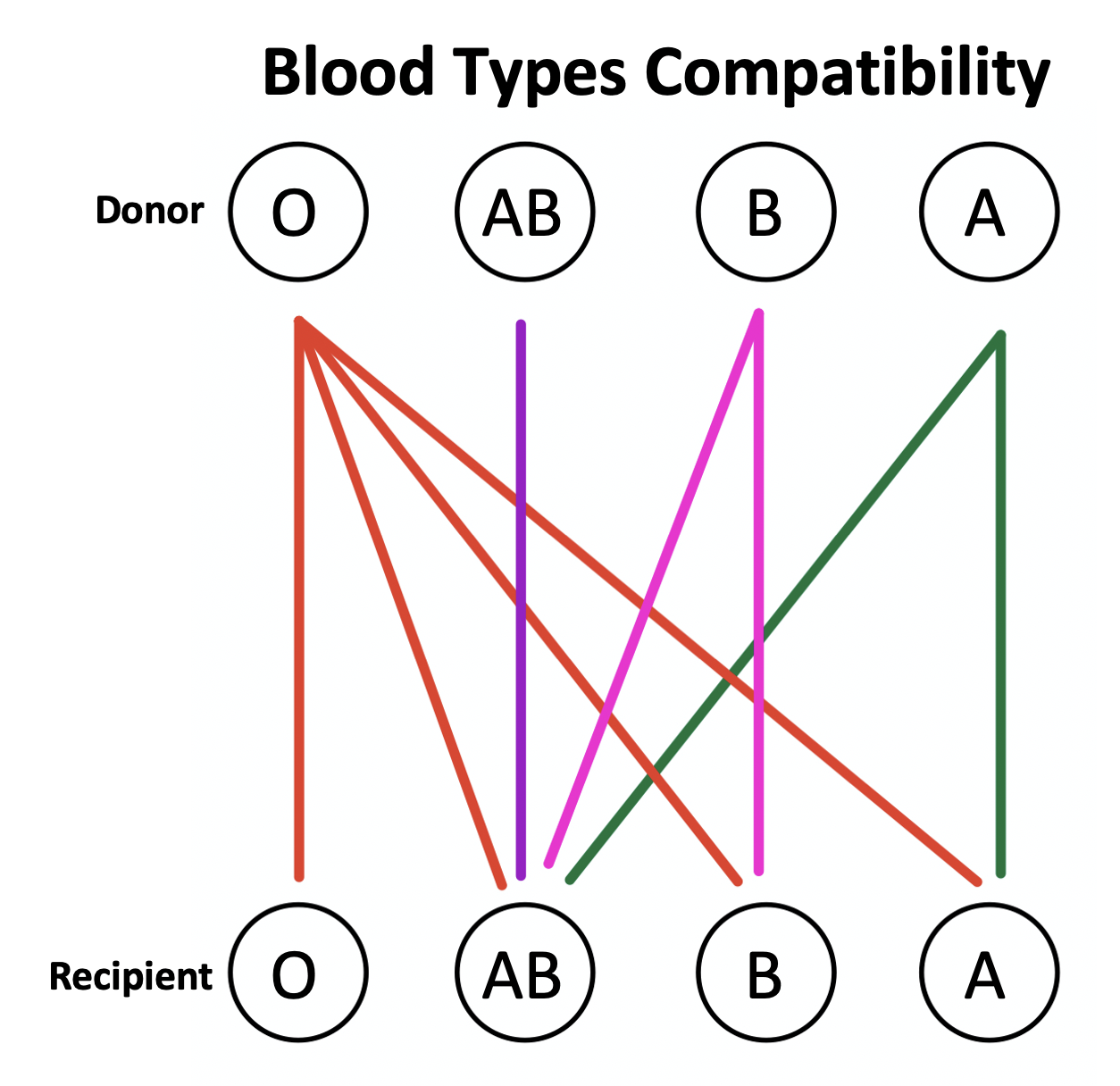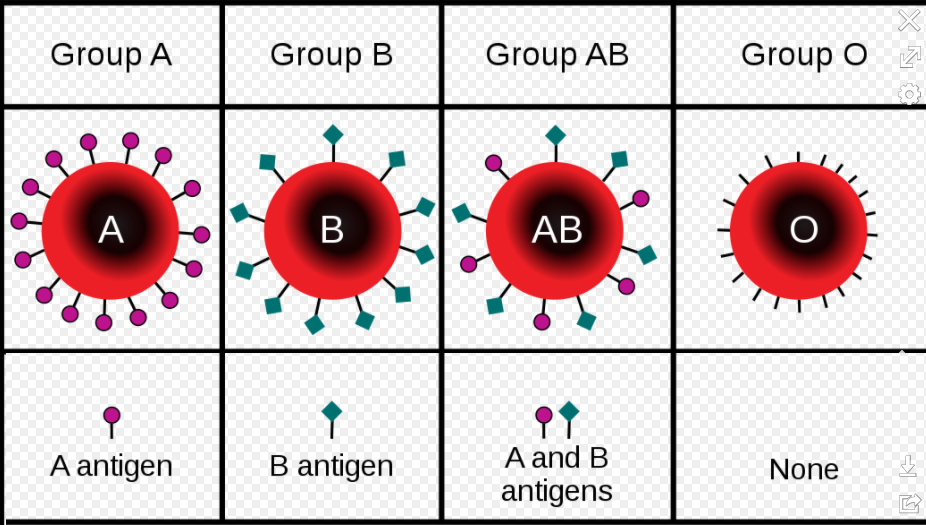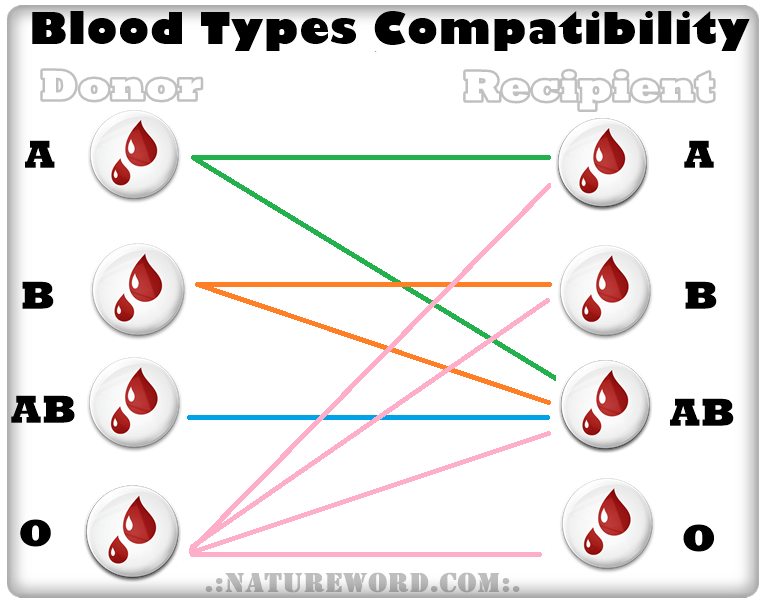What do you do when a patient requires a blood transfusion, but the specific blood type is inadequate in the blood bank? Blood shortage has become a concern around the world. According to American Red Cross, there are approximately 36,000 units of red blood cells (RBCs) providing daily in the U.S. However, there is still an average daily lack of 400 units in supplies. Such a crisis usually expands during an unprecedented situation; a recent article reports that there are critical blood shortages during the COVID-19 pandemic.
Chemists have been trying to examine the structure of RBCs and work for a solution by converting all blood types to the universally accepted O-type blood. The importance of their research is to overcome the blood transfusional barrier between different blood types. Hence, the blood supplies will increase to ease the shortages.
What are blood types and transfusional barrier?

Four major blood types and their corresponding antigens image. Credit: Calvin Pan
There are four major blood types: A, B, AB, and O. Transfusing incompatible blood type will trigger fatal immune responses because of the mismatched antigens between donor and recipient. O-type blood is the only blood type that is compatible with all individuals without being recognized as an outsider by our immune system, where either A or B antigen is absent.

Blood types compatibility between donor’s and recipient’s blood type. Credit: Calvin Pan
How to convert blood types
The researchers discovered the inefficiency of the enzymes to remove the antigens where many enzymes used for blood-type conversion have been studied for decades. In recent years, Kwan’s team carried out an advance improvement in enzyme activity. By using enzyme engineering, they modified sugar hydrolase from human gut bacteria into a 170-times highly efficient enzyme that was capable of removing both A and B antigens. Before the process of blood transfusion, the enzyme employed in the donor’s blood would look for the antigens and cleave them by a series of chemical reactions. As a result, this could turn all blood donations into universal O-type blood.
Description by video: how enzymes change the blood types. Credit: Science Museum
Kwan’s research has broadened the specificity of the enzyme as well as making the blood conversion more practical and promising for resolving blood shortages. Despite the milestone of completing the removal of A and B antigens by using that particular enzyme, lots of research and clinical trials still have to be conducted before going into practice. While we are waiting, the blood shortages may possibly continue during the COVID-19 pandemic. In the meantime, if you are eligible and willing to donate blood, you can contact the Canadian Blood Services or sign up today.
– Calvin Pan



